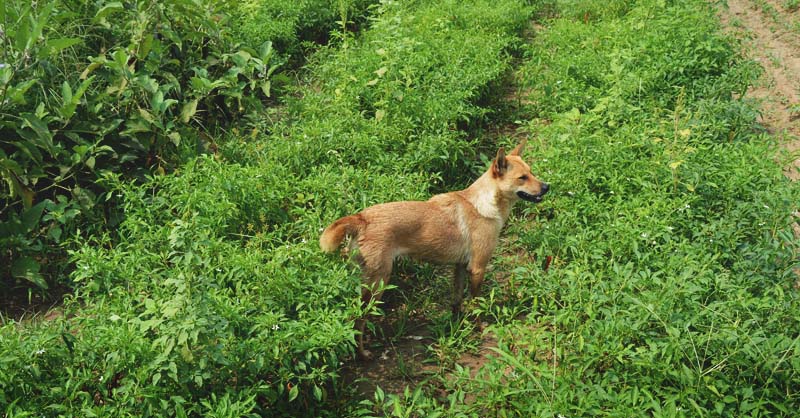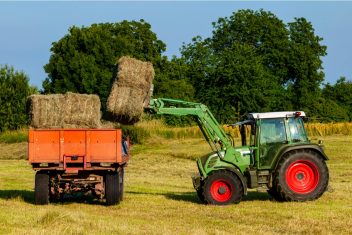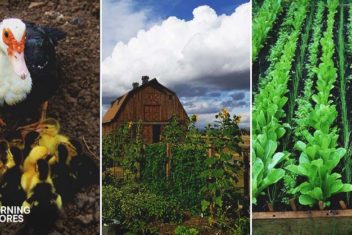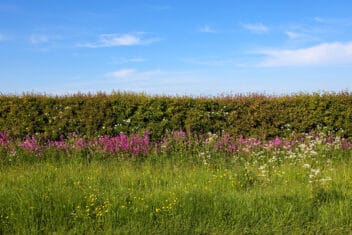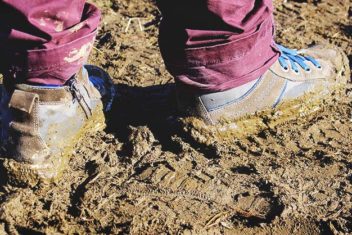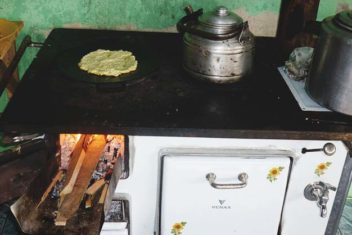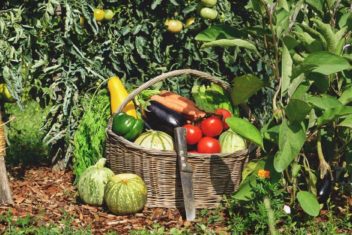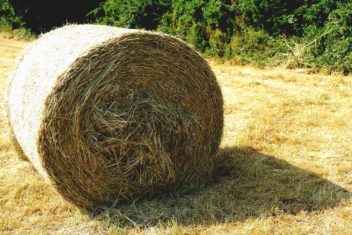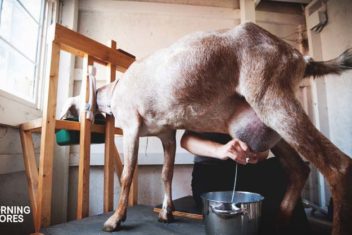When I first started homesteading, I had a pet Golden Retriever named Honey. He was my constant companion. He went just about everywhere with me.
So, there was no way he wasn’t going to move to our new homestead with us. But I had some pretty serious concerns about how to integrate a dog — especially one bred to be a good hunter — in with ducks, chickens, turkeys, and goats.
Turned out, my fears were unfounded. Once I explained to him which livestock were his charges, Honey was a perfect farm dog. He even helped me herd the goats and chickens out to pasture. He also understood that deer were not livestock and happily chased them away from my fruit trees.
Unfortunately, after 15 good dog years, Honey’s time was up. I was, of course, devastated to lose my best friend and farm dog. I was also in no state to consider whether I needed another dog. So, months went by.
But when the predators started getting to my poultry, I realized just what an asset my pet pup turned farm dog, had been to our homestead. After that, I had to do some deep thinking to determine if we needed another dog or not.
In case you are also considering whether you need a farm dog or not, let me take you through some of the concerns I found noteworthy.
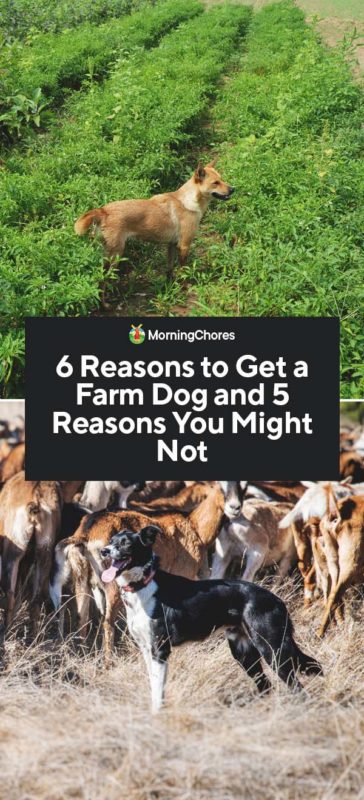
6 Reasons Why You Might Need a Farm Dog
There are a number of reasons why you might actually need a farm dog. Here are the biggies.
1. Livestock Protection
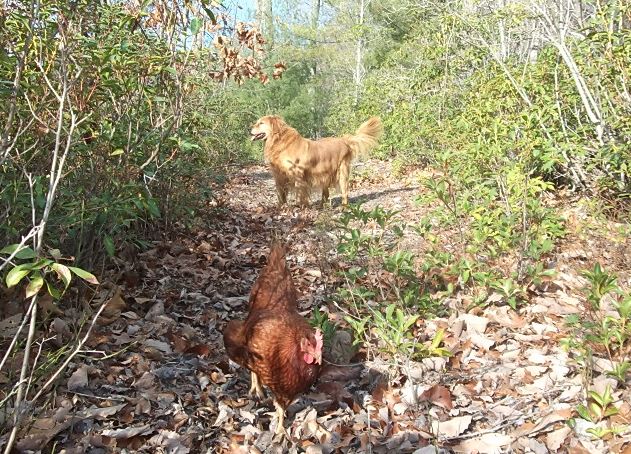
If you have predator problems, trained protection dogs such as Livestock Guardian Dogs (LGDs) can help. Generally, these dogs live outside near your livestock year round.
They may even sleep with larger animals like sheep or goats. For poultry, most people fence the poultry inside an area and use the LGDs to patrol outside the fence. Even though LGDs can be trained to work well with poultry under supervision, they are still predators themselves and are more of a risk to smaller livestock.
2. Personal Protection
I end up doing a lot of chores in the dark. There have been many times when I hear large animals rustling in the trees at night. I usually try to make plenty of noise to give whatever is out there time to go the other direction when they hear me coming. But, with a dog, I never had to worry.
Dogs alert you to potential dangers thanks to their keen hearing and night vision. A good dog will also run interference between you and any potential threat.
Unfortunately, bears aren’t the only possible dangers on many homesteads. In rural areas, drugs tend to be a fairly big problem. Even in our idyllic country setting, we’ve had criminals racing through the woods near us in a police foot chase.
We also have one rental house in the area that’s been occupied by a string of not entirely trustworthy citizens. There was a murder at that house, stabbings, and more. Out here, it takes 30 minutes for police to arrive.
Someone was also murdered and their body was covered in concrete just a few miles down the road from us over drug disputes right after we moved in. Quite frankly, if you live in remote areas or places with high crime rates, you may also want a dog for your own protection.
3. Herding Capacity
Some dog breeds also make great herding dogs. These are generally not the same breeds as are used for LGDs because herding requires a different skill set than guarding. Also, because herding dogs need so much dedicated training and attention, they usually end up being companion dogs to the shepherd rather than the herd.
If you are moving herds across large distances, or have large herds, then LGDs and herding dogs may both be necessary on your homestead or farm.
4. Vermin Control
Some breeds of dogs are suited explicitly to solving your rat and other vermin problems. Terriers usually fall into this class.
On a farm or homestead, rats and mice can carry disease and contaminate feed. They can be a big risk to the health of your livestock. So, if you live in an area where this is a problem, using dogs as vermin control may be necessary.
5. Deer Busters
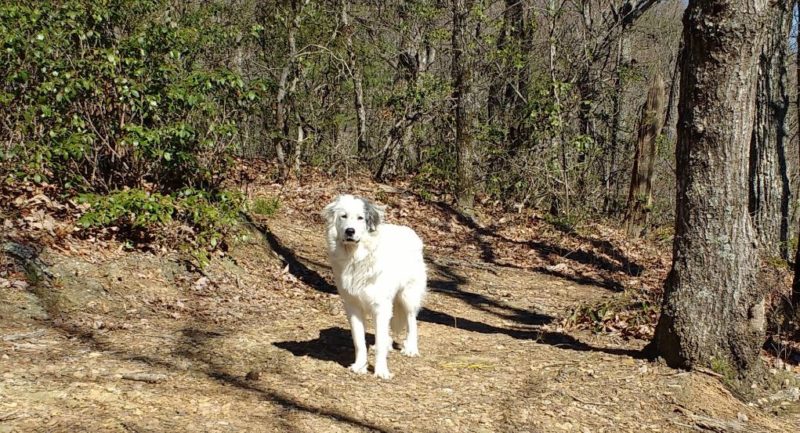
After I lost my dog Honey, the deer showed up in full force in our orchard areas. I tried lots of different ways of protecting our trees. But, honestly, every method had its drawbacks.
Cages made weeding and tree care more difficult. Fences are expensive. Fishing line works great, but I often forgot where I strung it and caught myself more times than I’d like to admit.
Having a dog to chase off deer has been one of the most effective methods of protecting our trees. As a bonus, keeping deer off your property entirely also helps cut down your risk for tick-borne diseases in many areas.
6. Companionship
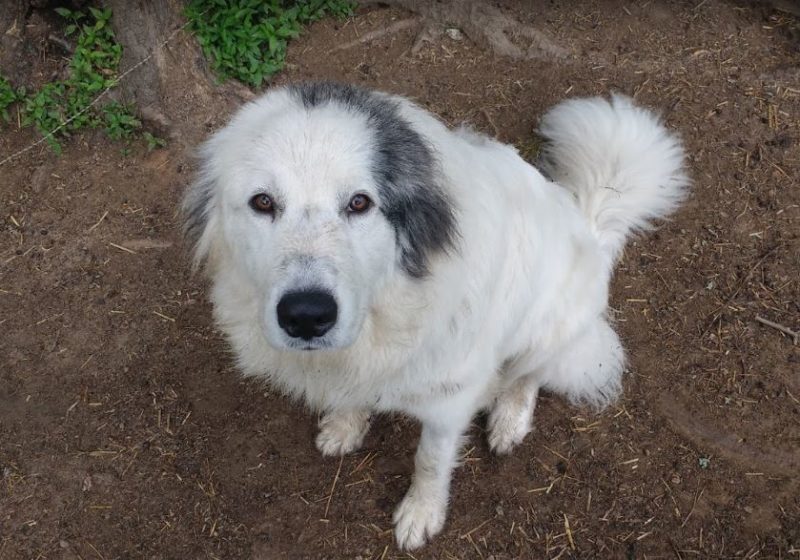
Homesteaders don’t get to leave home a lot. Chores like livestock care and gardening are daily commitments that make it challenging to have a regular social life.
Even if you love your livestock, you have to treat them, well, like livestock. They sleep in barns or coops or on pasture. They don’t usually come into your house or spend the evening on the porch swing with you.
Honestly, sometimes you only want a dog because you love them and they love you. Plus, lots of studies have shown that people with dogs are often happier and healthier as a result of that relationship than people who don’t.
5 Reasons Why You Might Not Want a Farm Dog
Now, with all those great reasons to get a farm dog, why wouldn’t you automatically want one? There are several reasons to think twice before bringing home a farm dog.
1. Environmental Responsibility
Every homesteader I know cares about the environment. We have to because our homesteading success depends on things like climate stability and clean, safe environmental conditions.
Now, there’s some pretty compelling evidence that one of the easiest ways to reduce our carbon footprint, is to reduce meat consumption and stop wasting food. According to researchers at UCLA, dogs, and cats in the US alone eat as much the entire human population of France. They also contribute to climate change at a rate equivalent to driving an extra 13.6 million cars a year.
When you know the environmental impact of keeping meat eating pets, adding another carnivore to a homestead is not an easy decision to make. As a homesteader, if you raise livestock for meat, your farm dog can eat most of the parts you don’t, which can’t cut your footprint on the pet front.
Also, I know not everyone will agree with me on this, but I feed dogs lots of other homestead products that might otherwise go to waste. Eggs, cheese, milk, cooked veggies, leftovers, and more all cut down on our dog food consumption.
Honey, for instance, seldom ate dog food. So, his carbon footprint was a lot smaller than a dog eating a frozen, raw food diet from an upscale grocery store. Dog poop, believe it or not, can also be composted and used in the garden if you compost it properly.
2. Training Time
Puppies are highly trainable. But they go through a series of puppy phases that present different challenges at different ages. Depending on the breed you choose, it can take 1-2 years, or sometimes longer, before your dog is mature enough to be left unsupervised around livestock.
Older dogs may not have the challenges of things like arousal biting or not knowing their own strength as puppies do. But they may have existing bad habits that can be impossible to break.
Regardless of whether you start with a puppy or a mature dog, you will have to spend significant time training your farm dog to respect the boundaries you set for your livestock.
3. Natural Born Predators
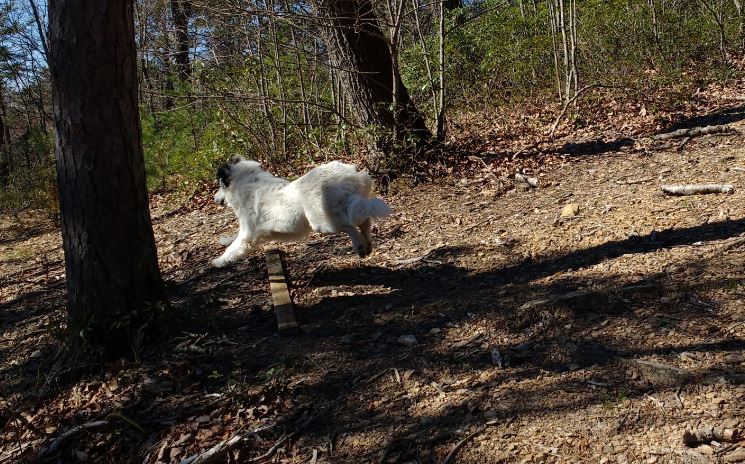
Dogs are natural predators. Even if you train them to respect your livestock and protect them, things can change in a second.
A wounded animal may trigger the predator drive of an otherwise perfectly behaved LGD. A dispute in your herd or flock that gets out of hand, if your dog gets injured, other visiting dogs goading your dog to play, or any number of events may override your training in an instant.
If you bring a dog to a farm or homestead that has livestock, there are always risks that the predator drive will kick in, even if only temporarily. That can mean injury or losses to your herd or flock.
4. Other Bad Habits
Some dogs dig. Others chew. Some hoard.
All of these things can be addressed through training. But they may mean you lose some plants, furniture, or your sanity in the meantime. Be prepared for property losses (and heartburn).
5. Costs
Pets are expensive. A farm dog may not technically be a pet. But, they will still need to be spayed or neutered. They are just as prone to fleas, ticks, and heartworm as pets are and will require monthly protection.
Injuries and illness must be treated. Particularly when you spend all that time training a dog to work well with livestock, you’ll want to do everything you can to save their lives in the event of an emergency.
Even if nothing goes wrong over the life of your dog, regular vaccinations and care can be quite costly.
Personal Farm Dog Experiences
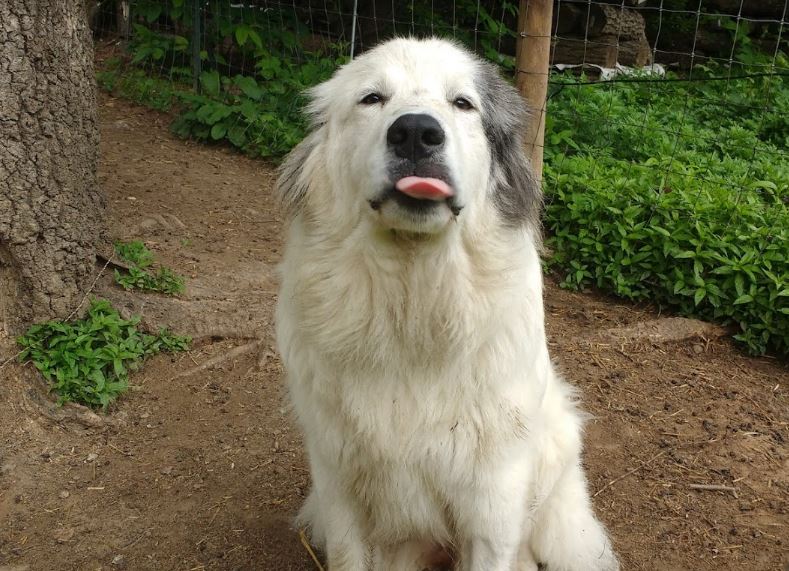
Honesty time. I’m a dog person. I’ve had them all my life. I’m also an avid environmentalist, so I have my reservations about pets in general.
A little more than a year after I lost Honey, I brought home Luna. She’s now a 10-month-old Great Pyrenees princess who works as an LGD part-time and a companion dog the rest of the time. The troubles with drug-related crimes in our area, the deer eating my fruit trees, and the predator pressure we experienced after Honey passed convinced me I needed her.
Luna killed a few of my ducks by accident shortly after we brought her home. Since then she’s learned. But, we still have more work to do before I can let her loose around the ducks even under my close supervision.
Probably in another few months, she’ll be ready for active duty. In the meantime, she has already alerted me to several hawk attacks, so I was able to save my chickens. She effectively keeps the deer at bay simply by barking at them.
Mainly though, she’s the sweetest thing ever. There’s nothing in the world like a great big Pyrenees puppy hug to make you feel safe and sound.
Conclusion
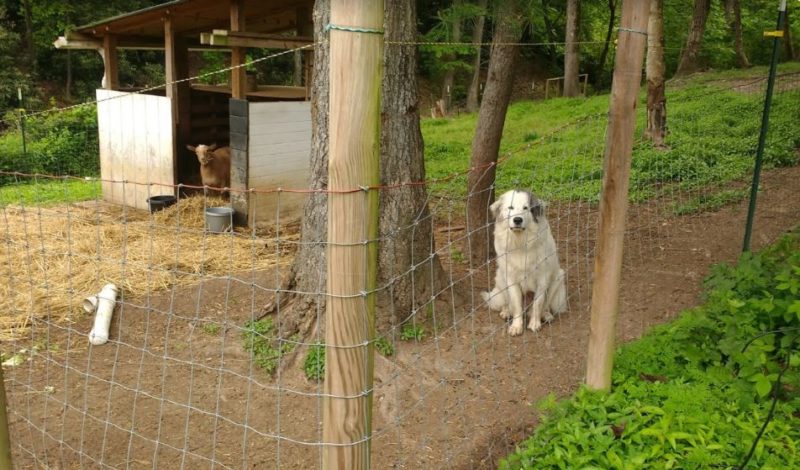
Think long and hard before you commit to a farm dog. Make sure you are ready for the responsibility. Consider how you’ll keep your livestock safe.
Then, do what’s right for you. Oh, and plant a few extra trees if you can to offset your precious pup’s carbon footprint.

